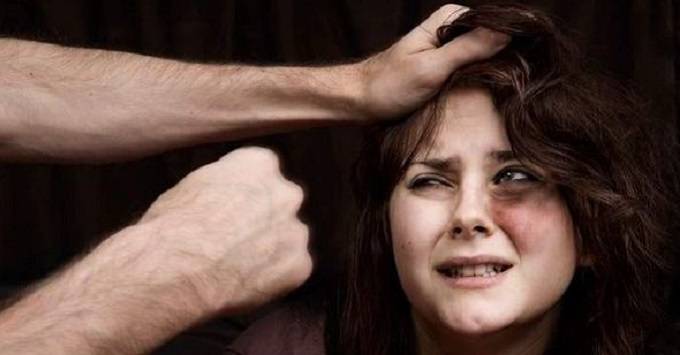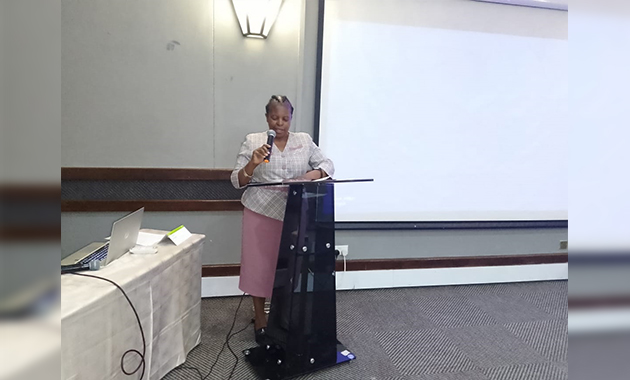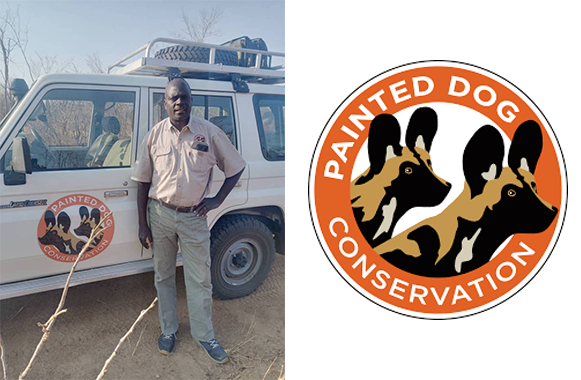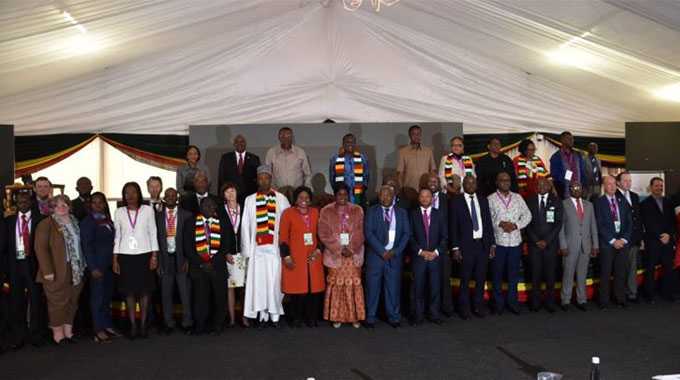Rural women suffer gender based violence in silence

Kudzai Chikiwa, Features Reporter
It is now history how her childhood sweetheart used to be the cause of her heartbeat.
It is now an expired file in her memories that when she tied the knot she blushed and vowed that only death would do them part.
Barely two years into their marriage, her husband turned into an abusive monster that substituted intimate kisses and love with blows, abusive language and forced sex.
Seated by her thatched hut in Sontala Village in Matobo, Matabeleland South, Nompilo Ngwenya*(30) gives a sad account of how her marriage has become hell on earth.
“We grew up together in this village. When we married before the chief’s court our families were happy. After giving birth to our first born he turned into a heavy drinker and abuser. George* is a gold panner and whenever he is lucky to get gold l don’t rest. He beats me up and calls me all sorts of names if l ask about the money. I am just tired of this relationship but l can’t get out of it,” she said showing a fresh wound on her left hand after a recent attack by her husband.
Ngwenya said when she told her aunties about the relationship they advised her to remain silent and stay ‘for the sake of her children’
But what can she do? If it was a marriage in the magistrate’s courts she could have signed it off.
How can she break customary vows she made before village elders and family? How can their two families face each other after a divorce?
Ngwenya said new brides are given ‘commandments’ by elderly women.
“We are told that respect your husband for he is the lord of the house, being beaten is a sign of love, it is a normal way of how men express love, internal issues are not publicised, divorce is taboo as it tarnishes families’ images and a strong wife endures for the sake of her children,” she said.
Ngwenya’s troubles mirror the sad life of many village women who are victims of gender based violence (GBV) but are helpless about it.
Experts say many women in Zimbabwe especially in rural communities hardly report cases of domestic abuse for fear of being stigmatised, fear of the unknown, a culture of silence and lack of knowledge.
While their urban counterparts can maneouvre the internet and read on their rights and how to deal with GBV, rural women continue to be stuck on traditional values and norms.
Sexual Rights Centre Director, Ms Musa Sibindi, said there is need to intensify rural women empowerment as they are still abused based on culture and religion.
“New brides are told that you have to endure for the sake of your children. They have been blinded to think that GBV is normal. It’s high time Government and women organisations invest in rural women empowerment,” she said.
Ms Sibindi said most anti-GBV advocates have not yet reached rural communities.
“Women in urban areas are now empowered and they know even the right to divorce but these are bound by traditional courts. It’s high time advocacy moves from just holding conferences in hotels but to go on ground and empower these women,” she said.
Ms Sibindi said traditional leaders and elderly people should play a critical role in empowering women.
“Gone are the days when a man was just made to pay a goat to appease a chief after abusing a woman. Justice should be put into consideration to help these women. Elderly people especially who receive the bride should be frank and empower young women,” she said.
Another gender activist, Ms Tsitsi Mashiri said women in rural areas are disadvantaged as police stations are usually far away from their homes.
“For instance those staying in plots, you find out that they need to walk long distances just to report. Women feel shy to walk around with wounds just to report. You meet people on your way and they start asking you all sorts of questions which cause secondary harm. At the end of the day one continues to suffer,” she said.
Ms Mashiri said non-governmental organisations, civil society and other stakeholders should involve men in GBV discussions.
“Men need to be educated on the effects of GBV to have a balanced society.Sometimes they may think they are acting normal while they are infringing on their spouse’s rights,” she said.
A Matobo man, Mr Musa Dube said women may fear to report because sometimes they are ‘trouble causers’ saying women empowerment has overemphasised rights of women.
“GBV doesn’t mean that men are always perpetrators, sometimes women are trouble causers. Because of this gospel of empowerment, women have lost respect and no longer know their places in homes. In as much as we empower them let’s not forget that we have an African culture we adhere to,” he said.
Mr Dube said some women do not report GBV cases as they might fear suffering after their husbands are jailed.
“If l am a bread winner and I am jailed for assault then who will take care of the family in my absence? At the end of the day women consider their family welfare and end up withdrawing GBV cases from the police,” he said.
According to Msasa project in Bulawayo, cases of gender based violence in the city are increasing with nearly 3 000 cases reported last year.
Speaking at a media and advocacy meeting in Bulawayo recently, a counselor from Msasa Project said it was frightening that cases of gender-based violence were increasing despite awareness campaigns conducted by stakeholders.
“Last year, to date we have dealt with 2 817 cases of women who were abused, of which 2 272 were new cases. Of that number, 369 needed shelter support,” said the official.
Msasa Project said the majority of women who reported physical assault were seeking for protection orders against their husbands.
“426 women reported on physical assault where women would have been battered using various objects and 165 managed to have protection orders against the perpetrators,” said the official.
The counselor said women in rural areas rarely report cases of GBV.
“This may be because they are not empowered enough or they are just afraid. More needs to be done to empower them. Sometimes we just hear cases from hospitals and wonder why someone has been quiet,” she said.
Most survivors, she said, face challenges at some police stations where they are made to report cases at the front desk instead of the victim friendly unit.
“Survivors are not comfortable describing their experience at a public place and they need privacy. Most women allege that the police do not treat them in a victim friendly manner,” said the official.
Msasa project, as a way to conscientise people on gender based violence, has engaged stakeholders including the police, courts and traditional leaders in making them aware on how to treat the survivors.
Recently, when First Lady Auxilia Mnangagwa met chiefs’ wives, she urged them to take part in fighting GBV in their communities.
“I would like to work with you on social cohesion, ending gender based violence, girl child marriages, rape cases, and having viable community guidance in promoting food security and ending prostitution.
“I urge you all to work closely with the police and report to them whatever will be happening in your communities that needs their services,” she said.
—@tamary98>











Comments